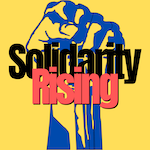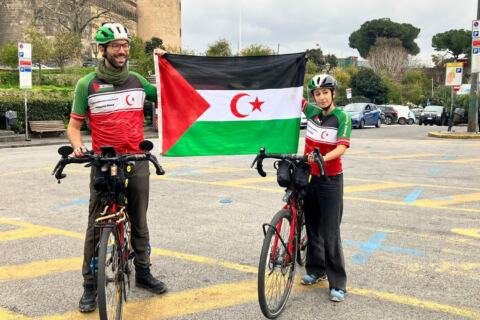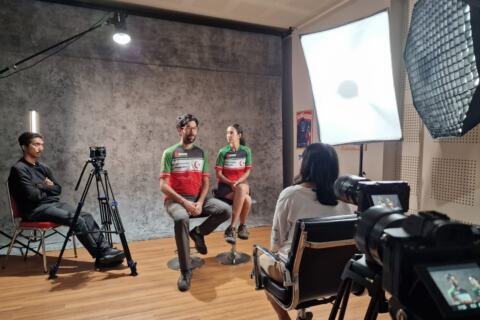As we have passed one year on the road on our Bike4WesternSahara tour, currently biking in Japan, we are taking the time to reflect on what we’ve experienced and learnt so far. Since it’s so much to cover we will share our insights in several posts. This is part three about our time in Croatia, Bosnia and Montenegro.
Croatia
Entering Croatia was different from our previous countries as we felt the very recent memories of war when passing buildings filled with bullet holes and talking with people we met on the road. It was also the hottest summer on record, and we experienced a lot of heat strokes when pedaling in 40 degrees. Our new strategy became to wet small towels in the rivers we passed and put them around our necks. It helped a little.
In Zagreb, the capital, we met Damir who had been to the Sahrawi refugee camps. While he was there he collected Sahrawi childrens’ stories and published a book of them to share with schools in Croatia and elsewhere. We got a copy from him to take on the road.
When we left Croatia and the EU border we were reminded of how privileged we are to have Swedish passports as so many refugees face harassments trying to get across. We even got visited by the police when camping in a family’s garden who demanded to see our passports, thinking we were refugees.
Bosnia
It was a strange feeling, biking through such a divided country as Bosnia. A country that has three different political leaders for each ethic group, where school children learn different versions of history depending on if they are Croatian, Bosnian or Serbian.
We met people who survived the genocide in Srebrenica and pointed at the graves of their family members and just days after we met a Serbian who denied that the genocide ever happened, despite video evidence of the executions.
We met a photographer who documented mass graves where generations of Bosnians could be found, a grand parent from the Second World War and a grandchild from the 90s war. Mass graves are still found today. We talked to organizations trying to get reparations for the victims who never got justice and who sometime have to see their perpetrator who are still employed by the government.
In Sarajevo, the capital, we were hosted by Fahrudin and his family. He told us how he survived a lightning strike that melted his necklace and how he walked 48 hours straight through a mine field to get to his brother during the war.
Bosnia was so intense and immensely beautiful, the people were so kind and although Sarajevo ended up being our favorite capital, we could understand why 2 million of the population had left in recent years. The ethnic divisions were still so present and the politics so strange.
Montenegro
In Sarajevo we met a group of bikers and one of them was Jonathan, a German bike tourer, who decided to bike with us for a week. Together we crossed into Montenegro, the country of mountains. It gave us the most extreme inclines we ever experienced, sometimes as much as 30% and without any breaks. One time we climbed over 2000 m in just one day. It was so tough that we could barely push our bikes when walking.
The extreme cliffs and narrow serpentine car roads made it impossible to camp and we were wondering what we should do. Suddenly a car stopped and an Indian couple, Senora and Arjun, asked if we needed help. They offered to take all of our bags so we could complete the rest of the climb. We decided to trust these complete strangers with all of our belongings. And we are lucky we did.
Just minutes after they left it started pouring down rain and we heard the thunder closing in. We were shaking so much from the cold. The darkness made it impossible to see the slippery road and Benjamin’s glasses were so wet that Sanna had to guide him by screaming when to turn. There were many times where we thought of giving up. But eventually we reached the town and our new friends offered us to stay with them in their Airbnb cottage. Suddenly we had hot showers, amazing company and a comfortable bed (Senora and Arjun gave us theirs and slept on the sofa).
We are still in contact with them today and hope to travel together in the future! This is the extreme life of the road, the bad and the good.
Related Posts
February 25, 2024
Italy part 1
After being deported from Indonesia and spending christmas with family it was…
December 19, 2023
Chased out of Indonesia!
On Wednesday 13th of December we received news that a family acquaintance had…
September 27, 2023
500 days on the road
Just the other day we looked at our lengthy Excel sheet, that contains every…



